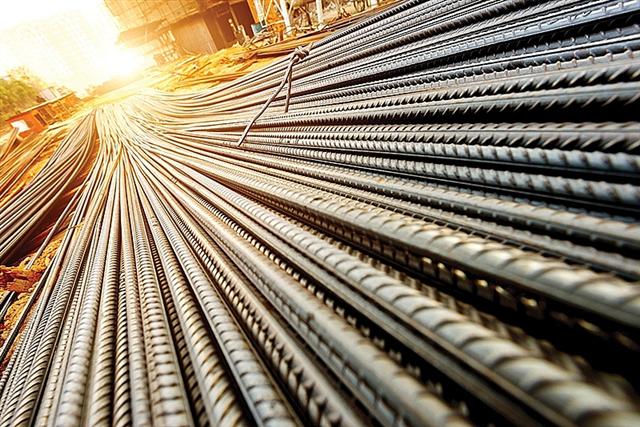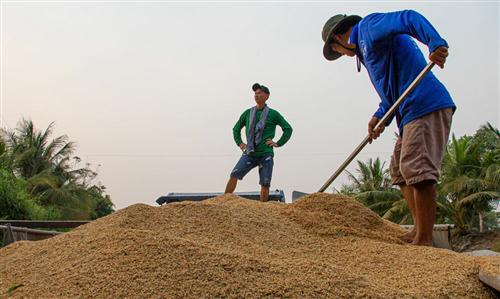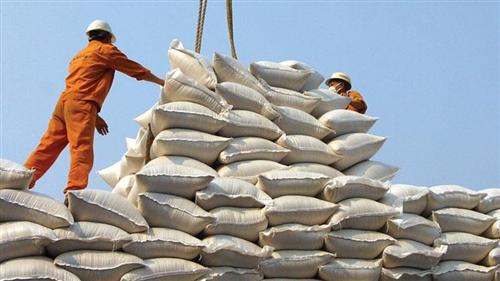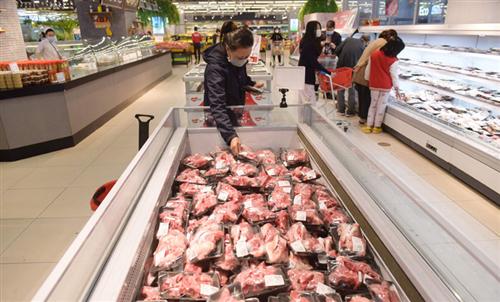Toiling steel ventures ask for state urgency
Toiling steel ventures ask for state urgency
The unpredictability of the global coronavirus outbreak has disrupted the demand for steel and forced steel projects to lay idle or cut production.

Toiling steel ventures ask for state urgency, photo Shutterstock
|
Hoa Phat Group, one of the leading Vietnamese private steelmakers, has failed to run its hot-rolled coil facility as scheduled. The group said that the line at its $2.6 billion Dung Quat complex in the central province of Quang Ngai finished installing equipment and was expected to test run and go into operation next month, but is likely to be delayed as Italian experts and other overseas engineers are stranded outside Vietnam. This is a modern and highly-automated line. Italian and other foreign engineers cannot be replaced for completion of the blast furnace, said the group, which has supported the government with around VND5 billion ($217,400) to battle the pandemic.
Hoa Phat added that the hot-rolled coil line at Dung Quat complex will begin operations as soon as it is feasible. This delay could place more burdens on the group’s strategy to increase the steel supply, leading to changes in market shares for steelmakers domestically this year. This key project was slated to double the sector’s output of steel products to 4.35 million tonnes per year in the first stage.
Meanwhile, the virus pandemic is taking a bite out of profits ranging from petrochemicals and semiconductors to steel at Taiwan-based Formosa Plastic Group, which operates a $10.5-billion steel and port complex in the central province of Ha Tinh. In light of the ongoing pandemic, Formosa Ha Tinh Steel has lowered prices for its hot-rolled coil products for May shipment and delivery to $40 per tonne. Formosa also decreased its wire rod offers for cargoes to be shipped and delivered in March.
Although the numbers of new infections and deaths in China are decreasing, other countries in Asia such as Japan, Singapore, and Vietnam have reported increasing infection cases. According to commodity data provider Fastmarkets, this affects the downstream demand from end-users, who are confident that prices will fall further and are in no hurry to purchase materials.
Thus, it is forecasted that the weak demand may hold Formosa’s plan to begin a third blast furnace construction after firing its second last year to bring the group’s total production capacity to 6.71 million tonnes of liquid cast iron annually, with sales estimated at $3.5 billion
Meanwhile, other local steelmakers are in extreme difficulties and blocked from both export and import lines while the domestic consumption is gloomy as nearly all works are at a standstill. Hoa Sen Group JSC, Nam Kim Steel JSC, and Pomina Steel JSC estimated that profits in the first quarter of 2020 plummeted at least 30 per cent on-year. Dai Thien Loc Corporation, specialising in manufacturing cold-rolling and galvanised steel, is projected to lose about VND12 billion ($521,740) in the same period.
Nghiem Xuan Da, chairman of the Vietnam Steel Association (VSA) said that Vietnam’s steel market was indeed gloomy, with moderate production and sales. He added that businesses who want to sell their products have to severely lower prices compared to standard market level, though consumption remains very low. Inventories of finished products are increasing, while businesses still have to pay interest on bank loans and storage costs.
In the first two months of 2020, the domestic steel production and consumption are estimated to have decreased by 35-40 per cent on-year, in which galvanised steel, sheet metal items, and coating colours for domestic consumption reduced nearly 70 per cent, and cold-rolled steel by 87 per cent on-year, according to Da.
He added that the VSA has called on the government to help through two proposals – extension for steelmakers’ loans, and a reduction in lending rates. A representative of a steelmaker who declined to be named said that what businesses want from the government is support with specific and practical policies.
He called a drop of 5 per cent in the corporate income tax rate, which has already been applied by some countries.























